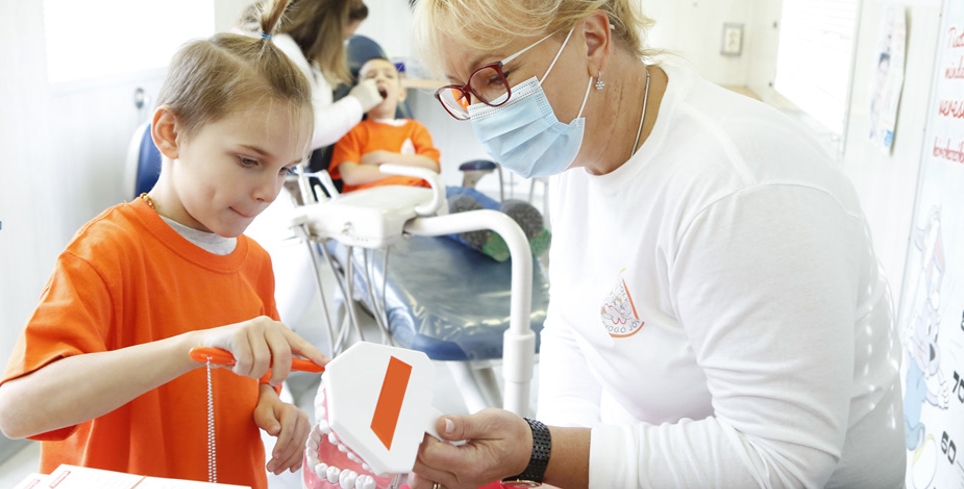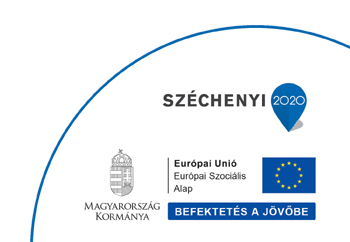Tóth Tünde M.D.
In this program teachers get help in doing their first and fourth task of holistic health promotion (HHP, see short summary in the frame): improving healthy eating and health literacy + health competencies of children.
Holistic health promotion in Hungarian schools: short summary
The holistic health promotion (HHP) for schools is prescribed by law in Hungary since 2012 and it means a holistic, whole school approach where health promotion has to be part of the everyday life of the school - with participation of the whole school, parents and the public environment. HHP contains four health promoting tasks for teachers to do in their everyday work:
I.) Healthy eating - potentially based on local food products;
II.) Daily physical education fulfilling health promotion criteria and other forms of physical activity;
III.) Using appropriate pedagogic methods (including arts) to enhance mental health; IV.) Improving health literacy and health competencies of the children.
Colgate Bright Smile Bright Future® programme launched in 1991 has been involved in maintaining oral health for more than 1 billion children and families in more than 81 countries to date.
In Hungary, an online health education programme called Bright Smile Bright Future for children aged 6-8 years was developed in 2019, in which the head of the Depart- ment of Children and Youth of the Faculty of Dentistry of the University of Pécs, dental students and the Oral Health Liason Specialist of Colgate Palmolive Hungary Ltd. participated. We have chosen school beginners because the first permanent tooth erupts around the age of 6, which will – if all is well – remain for a lifetime, that is why maintaining the health of permanent teeth is of utmost importance.
Tooth decay is a common chronic condition that affects schoolchildren as well.* Students are missing more than 50 billion hours worldwide due to illnesses caused by inadequate oral care. This can negatively affect students’ school performance and their success in life.** The WHO’s goal set for 2020 was to ensure that the teeth of 80% of the children aged 5-6 were sane. In 2017, only the teeth of 42.6% of this age group were sane in Hungary.***
The curriculum of the Bright Smile Bright Future Programme is available online (www.ragyogomosolyprogram.hu). The health education sessions are held by the schoolmistress, the school nurse, the school dentist or the dental hygienist. Elementary school students learn about the topic on four occasions. The topic of the first lesson is healthy eating, the second lesson is about the structure of teeth and tooth replace- ment, the third lesson is about teeth diseases and tooth injuries, and the fourth topic is about oral care. Suggested sessions last for 25-30 minutes.
The dedicated website also provides audio material in a wording that children can understand. Children can check their acquired knowledge with a playful Kahoot quiz, and each lesson includes a 2-minute fairy tale film that is just as long as the recom- mended brushing time. You can watch one of the four tales under the following link: https://www.youtube.com/watch?v=PShJB7le5wU
The site also includes a theme-related memory game, word search, colouring and a brushing diary.
Following the four sessions, the children can make a 2-minute film using a mobile phone about the suggested topic: “How to keep my teeth healthy”. The most creative output can win for the whole school a dental bus screening. Availability of the winning video for the 2020/2021 academic year is at: https://www.facebook.com/watch/?v=221902949591216
Please watch a short video about the event won by the school from Miskolc: https://www.youtube.com/watch?v=YRaIrfoJdpc
In the 2020/2021 school year, schools participated in the programme on a volunta- ry basis. According to the data of the Hungarian Central Statistical Office, 103,475 first-grade students started the school year. We have reached more than 54,000 young students by the programme. In the 2021/2022 school year, the goal is to reach nearly 100% of them, especially since the programme has won the support of the Klebelsberg Centre. This is also of outstanding importance as according to WHO recommenda- tion, oral health education shall be included in the curriculum of schools promoting oral care, the educational materials are age-specific, child-centred and ability-based. The educational materials of the Bright Smile Bright Future Programme are typi- cally age-specific, child-centred, and are recommended to be held in the framework of biology classes or classes with the head teacher.
The oral health programme forms part of holistic health promotion, which is prescribed by law in Hungary for every school since 2012. The programme promotes schools in activities relating to healthy eating (first task of HHP) as well as improving health literacy (fourth task of HHP). The programme gives excellent help to teachers in fulfilling their HHP tasks mentioned above.
Finally, we quote a feedback on the programme from a teacher participating in the programme: „We consider their health education programme to be extraordinarily good, the information materials are perfectly tailored, understandable for children, interesting, and more importantly, they are to be followed.”
* Duangthip D, Gao SS, Lo EC, Chu CH Early childhood caries among 5- to 6-year-old children in Southeast Asia. Int Dent J. 2017 Apr https://www.ncbi.nlm.nih.gov/pmc/articles/PMC5396273/
** Jürgensen N, Petersen PE Promoting oral health of children through schools - Results from a WHO global survey 2012. Community Dent Health 2013
*** Szőke J, Petersen PE: Changing Level of Dental Caries over 30 Years among Children in a Country of Central and Eastern Europe -The Case of Hungary Oral Health Prev. Dent 2020



